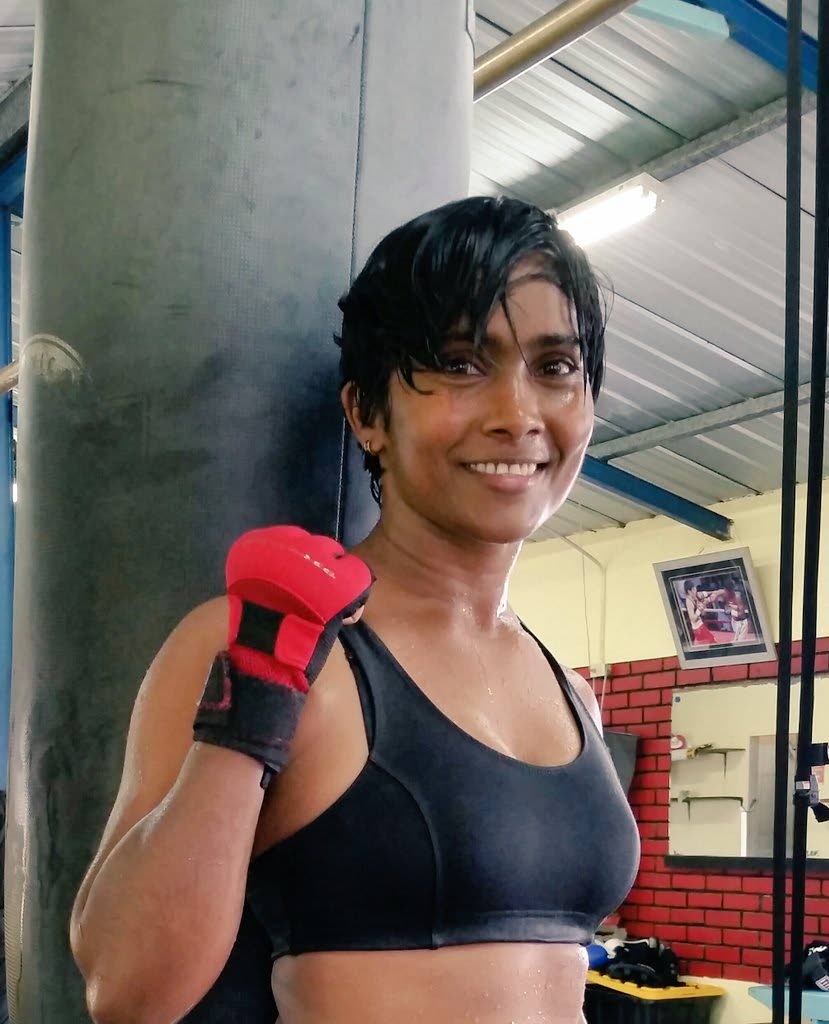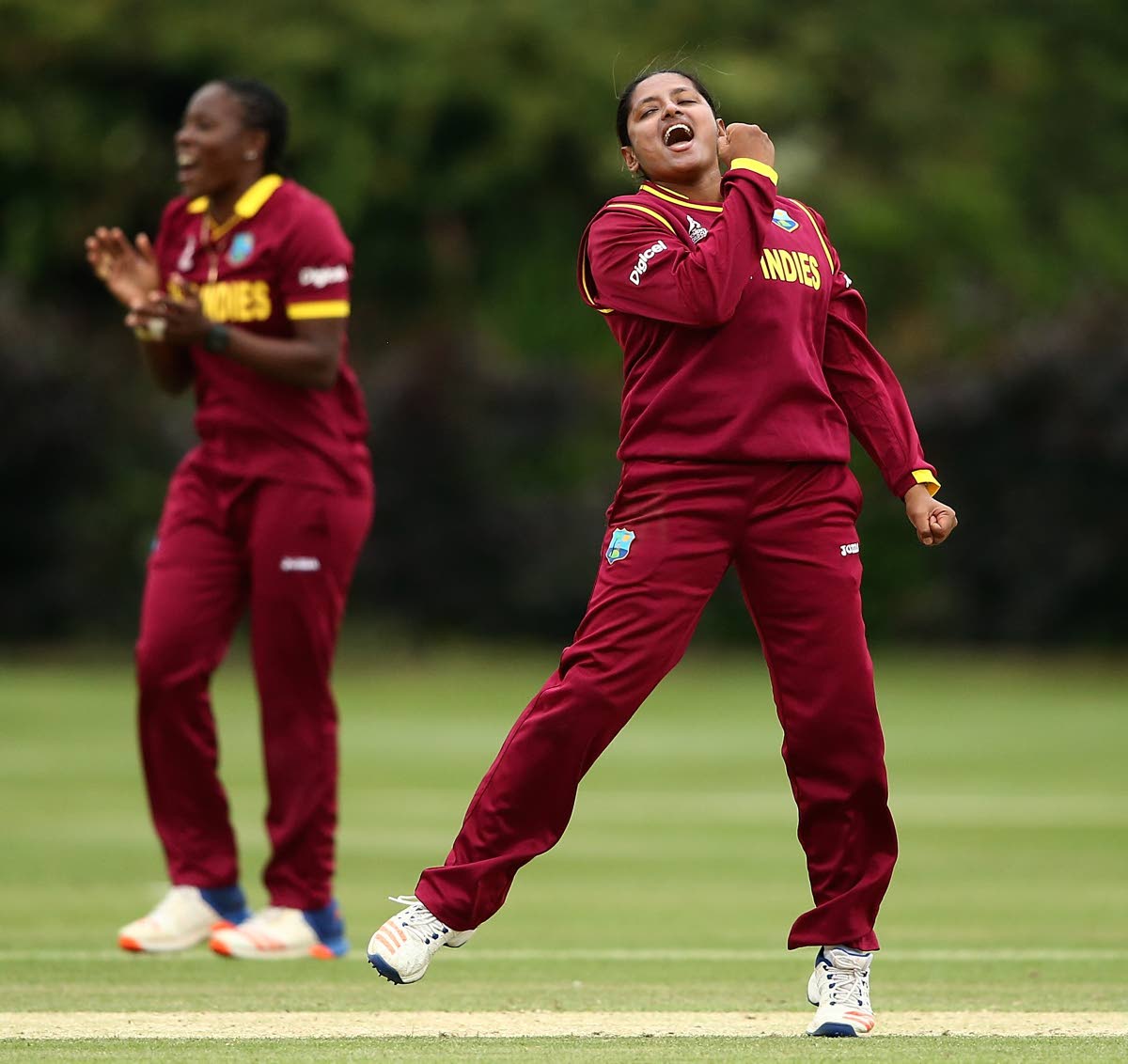The Future is Female

Gender equality in sports has come into sharp focus for many sporting organisations as the quantity of female athletes and their performance increases.
TT is no stranger when it comes to talented and skilful female athletes and, therefore, the Trinidad and Tobago Olympic Committee (TTOC) introduced The Future is Female Project in January. The project is presided over by a gender neutral executive committee that was elected in April.
According to the TTOC’s website, the main aim of this project is to ensure, “equal opportunity for women and girls and equal chances to succeed at all levels of sport.”
The project also seeks, “To encourage and empower increased participation of women and girls in sport and physical activity not only as athletes, but also coaches, sports medicine and sport science providers, administrators, leaders and sports media.”
Brian Lewis, president of the TTOC and the Caribbean Association of National Olympic Committee, said, “I am off the unwavering view that sport must step it up for gender equality and parity. And the TTOC, as the head of the Olympic movement in Trinidad and Tobago, must lead from in front.”
Lewis, a passionate advocate for the Future is Female project, has admired strong, independent women in society since childhood due to the influence oh his single-parent mother. Therefore, this project is something that has been in the works for years and he is currently championing the need for overall gender equality at various panels and conferences worldwide.
For instance, under Lewis’ leadership, the TTOC and Association of Summer Olympic International Federations (ASOIF) hosted the Second International Federation Women In Leadership Forum in Lausanne, Switzerland, in March to celebrate International Women’s Day.
Lewis said, “I believe that men need to work along with women to create gender parity.”
In speaking with Newsday, Lewis also said the TTOC was putting policy into practice as Lewis advocated that, “As the president I am committed, and taking personal responsibility, to ensure the TTOC is fully engaged in driving change and turning goals to concrete action for gender equality and parity.”
This can be seen in the TTOC’s collaboration with the Bahamas for the 2017 Commonwealth Youth Games and their plans to host an advancing women in leadership forum in September.
Although Lewis is using his platform in the sporting industry to raise awareness of the need for gender equality, he believes that the issue is not limited to female athletes. He said the most dominant form of discrimination towards women in sport, and in general, stemmed from the fact that TT was still patriarchal and there was an unconscious cultural bias against women because, “We have been socialised in a hetero-normative culture towards gender.”
Ramnarine: Uniqueness
got me recognition
Ria Ramnarine, the first female boxing champion of TT, also shared her views on gender equality in sports.
“With me it’s a bit more complicated because when I started boxing it was a male dominated field.” Ramnarine said. “It worked for me being one of the few female boxers. And being the best at what I did, got me headlines and recognition for the uniqueness of my situation.”
On the other hand, Ramnarine, who has completed her master’s in sports organisation and management, noted that she was aware of the gender inequality other female athlete’s experienced.
Ramnarine said, “The TTOC is doing a lot. A good effort is being made because I know they see the untapped potential. But I’m yet to see a concerted effort by other organisations to get women involved in sports.”
Ramnarine did her master’s thesis on women’s participation in sports for which she interviewed 12 known Trinidadian athletes and 104 other participants. Her research found that women suffered inequality in the sporting world ranging from lack of equipment, infrastructure and compensation.
Mohammed: Compensation doesn’t match up
Ramnarine’s findings were endorsed by Anisa Mohammed, the renowned spin bowler for the TT and the West Indies women’s cricket team.
“You aren’t compensated the same as the men,” Mohammed said of female cricketers. “I understand it can’t be completely identical but what we get is nothing compared to them.
“Regional players are getting more than our national players even though we work twice as hard.”
In the world of spectator support and media coverage, there is a wide disparity in the priority given to female athletes when compared to their male counterparts.
Mohammed noted that media coverage and public support went “hand in hand” because people could not support what they didn’t know was happening. “When we won the T20 world cup last year then we got a lot of support from the public once we were out there,” Mohammed said. “We defended our title for Trinidad in the T20 and regionals last year. It takes us getting to the top to get the media to pay us similar attention. It took us getting all the way there for the recognition.”
Joelissa Cooper, captain of TT’s national senior netball team, is also well aware of our country’s shortcomings with gender equality in sport as she has been playing, professionally, since the age of 17.
Cooper believes in encouraging young girls to take the path to being professional athletes.
“Incentives–be it the opportunity or funding, which is lacking drastically within female sports–need to be put in place,” Cooper said. “I do not think the Government is doing enough. And I have many years of experience but I acknowledge it isn’t only them because there is corporate Trinidad too.
“Essentially, as a nation we aren’t doing enough.”
Cooper, similar to Mohammed, said the pay gap between male and female athletes was very substantial.
“I don’t think we are compensated equally and it’s the simple truth,” Cooper said. “There is nothing like equal pay.”
Though, Ramnarine and Mohammed are aware of the struggles female athletes must endure and the long road ahead to equal treatment on all fronts, they both had some words of wisdom to share for aspiring female athletes, especially the younger girls.
Ramnarine said, “I would encourage any female to get involved in sports, regardless, and to be true to themselves. Sports provides many health benefits. You are less likely to get in trouble as being involved in training or practice is a positive use of your time.
“Don’t let the other trails other females are currently facing be a deterrent, just keep trying.” Mohammed also added her piece by saying, “Go after your dreams and don’t let anyone tell you that you can’t achieve anything.
“Dream and you’re halfway there.”
Cooper, on the other hand, found giving advice a bit disheartening as much as she supported her fellow female athletes saying, “Honestly, it’s difficult for me to give advice when nothing is in place for our young talent yet.”
It seems TT has only begun to turn the corner towards equality between men and women in the sporting world.
Lewis, however, believed that good governance could only be achieved when there was gender equality.
“Action speaks louder than words,” Lewis said. “We must be the change we want to see and equality means equal in every aspect.



Comments
"The Future is Female"